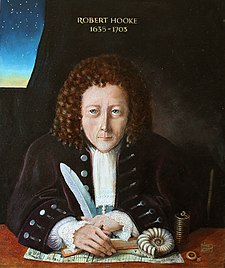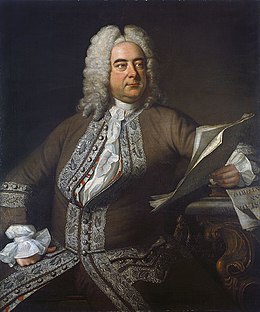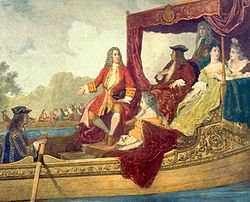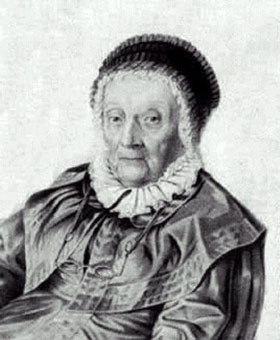Hello. Today is celebrate your ladyparts day International Women's Day. This is exciting, non? I think so. There is a lot of stuff out there about celebrating the achievements of various women and, alternatively, criticizing countries and regimes which subjugate women. Having read some of this over the past few days, I started to be very glad that I am living where I am, but also when I am. I'm fortunate, I thought, that I live in the 21st century, where, at least in the UK, I am treated as a human being with human rights. So much better, I thought, than in Ye Olden Days.
Until I started reading this book. It's very interesting, as well as that rare sort of History book which is highly informative and well researched, but also fascinating for someone who only has a small interest in History. Written as a travel guide, it's literally like reading about visiting Spain, or China, or Mars for that matter. Anyway, in this book (which I'm not getting paid for the advertising of, honestly), the author talks about the rights of women in fourteenth century England.
In some ways, as people - myself included - it is very much a misogynistic society, with women controlled by men and no one wanting to change this as it is clearly God's will, as punishment for Eve's sins. Lack of understanding about general medicine meant that a lot of women died in childbirth, and as the general life expectancy was lower, women were often married at around the age of 14, quite shocking to us today. Furthermore, though rape was an extremely serious offense, it was extremely rare that a man was convicted, as it was taught that women could only conceive a child if she orgasmed during sex. If a child was conceived, she had clearly orgasmed, thus "enjoyed" the rape, and so it wasn't rape. Alternatively, if no child was conceived, there was no proof that the rape had taken place other than the woman's word, which, especially against a man in a position of power over her, was not likely to be believed.
Though forced marriages were fairly rare, they did still occur and must have been awful for the women who suffered through them. Women were also not considered free as such - even a high society woman 'belonged' to her father before she was married, then to her husband afterward.
Phew, you think, I'm glad I live now and not then.
Well, yes and no. Obviously there were huge inequalities in society, but there were some ways in which women did manage to have fairly equal opportunities. For example, women were allowed to report abusive husbands in their local church, and the men were often punished severely for their actions. Men on the other hand, were not allowed to report any violence against them by women, as if they did so, they would be perceived as a cuckold and therefore ridiculed. A backhanded reason for celebration, perhaps.
Another way in which women were more equal than we might first think was that, in the event of their husbands' death, she could take over his job or trade and make money for herself this way. For most women, this just meant continuing to farm the same fields or sell meat in a butcher's shop, but for a few notable exceptions this could leave them very rich - such as one woman from Coventry who ended up with a cloth business that was exporting its wares as far afield as Spain and earning her in excess of £800 in Medieval terms.
Though there were a lot of arranged marriages, often men and women worked together to try hard to make it work and most came to love each other after a little while. If not, especially in the upper classes, one or both partners could take partners whom they loved - or at least lusted after.Women had the advantage of not being allowed to go to fight, and as there were a lot of wars going on during the 14th century, it greatly reduced their chance of dying whilst still young. Men who lived to an old age were looked down upon, unable to fight, they were considered no longer masculine. An old woman, on the other hand, was considered at the height of her power, full of the wisdom of the ages.
Clearly, there was inequality in the Medieval society, and probably more so than there is in today's society in the UK. But conditions were perhaps not as harsh as one might first think, and though I still wouldn't want to live in their society, this is starting to have more to do with the large amounts of germs flying about with the Black Death and whatnot, rather than their treatment of women.











